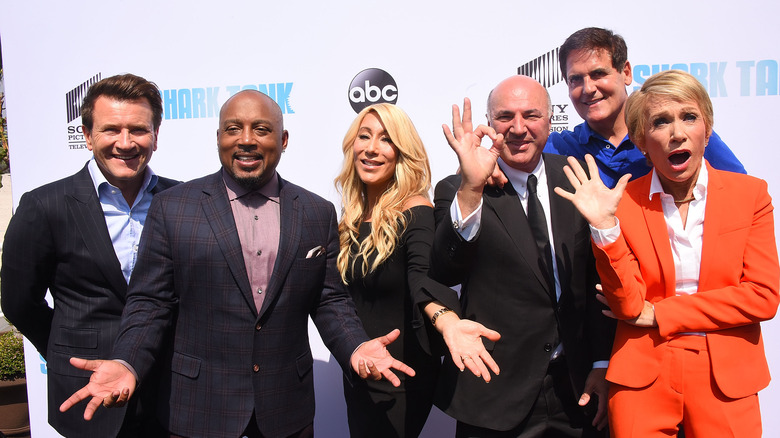Shark Tank: Why You Should Avoid Anna & Samantha Martin's Keto Pills At All Cost
Whether or not they score a deal, "Shark Tank" entrepreneurs deserve props for at least putting in the work to get their business featured on the show. But others prefer taking the easy route, as was the case for a weight loss brand that went out of its way to trick fans into believing that their "Shark Tank" deal was one for the record books.
Sisters Anna and Samantha Martin's pitch was for their weight loss supplement Slim Fit 180, a keto-based diet pill that could allegedly help users lose as much as 97 pounds in two months. The sharks were supposedly left stunned by their product, calling it "the greatest step forward in weight-loss history" and even giving the team a standing ovation. Each investor put in $1.3 million for 25% of the business, and the segment itself was said to be the most-watched in "Shark Tank" history.
It doesn't take a rocket scientist to realize how phony these claims are. A quick internet search will find that no such "Shark Tank" pitch exists, with the scammers using photos of past contestants such as Tippi Toes' Megan Reilly and Sarah Nuse to pass off as the alleged Martin sisters. The company's deceptive tactics have extended to fake celebrity endorsements, before-and-after weight loss photos, and press releases from invalid websites.
It appears that Slim Fit 180, which was rebranded to XSlim Keto+ACV Gummies, has been anything but effective. Reviews on Amazon largely call the item a waste of money that didn't help them in the slightest. It feels wrong that such slimy maneuvers go unpunished, but the sharks are fighting to change that.
Mark Cuban has called out the Federal Trade Commission
The rewards reaped from an appearance on "Shark Tank" can be immeasurable. Even businesses that fail to score a deal with an investor often experience the "Shark Tank" effect in the immediate aftermath of its episode's airing, where its sales and website traffic receive a significant boost. Scammers such as Slim Fast 180 have sought to take advantage of this exposure without putting in any of the work, going to extreme lengths to fool customers into thinking that they are a "Shark Tank-approved company.
The sharks themselves have taken to informing their audience of these potential deceptions. In two different videos posted in December 2022 and March 2023, the investors spoke out warning their viewers of the common tactics used by scammers, such as Photoshopping their products being used in the tank. But they're aware that's not enough to solve the growing dilemma. Longtime "Shark Tank" star and Dallas Mavericks owner Mark Cuban reposted one of the videos on his Twitter and called out the Federal Trade Commission and FTC chair Lina Khan for their inactivity on the matter. His tweet read, "Hey @ftc we have been asking for years for you to stop this. You awake @linakhanFTC?"
As of this writing, there hasn't been any response on the FTC's part. If you have doubts regarding a "Shark Tank" business, the easiest way to confirm its legitimacy is by visiting ABC's official site, which lists every company featured on the show. Additionally, you can report fraudulent activity online to the FTC.

